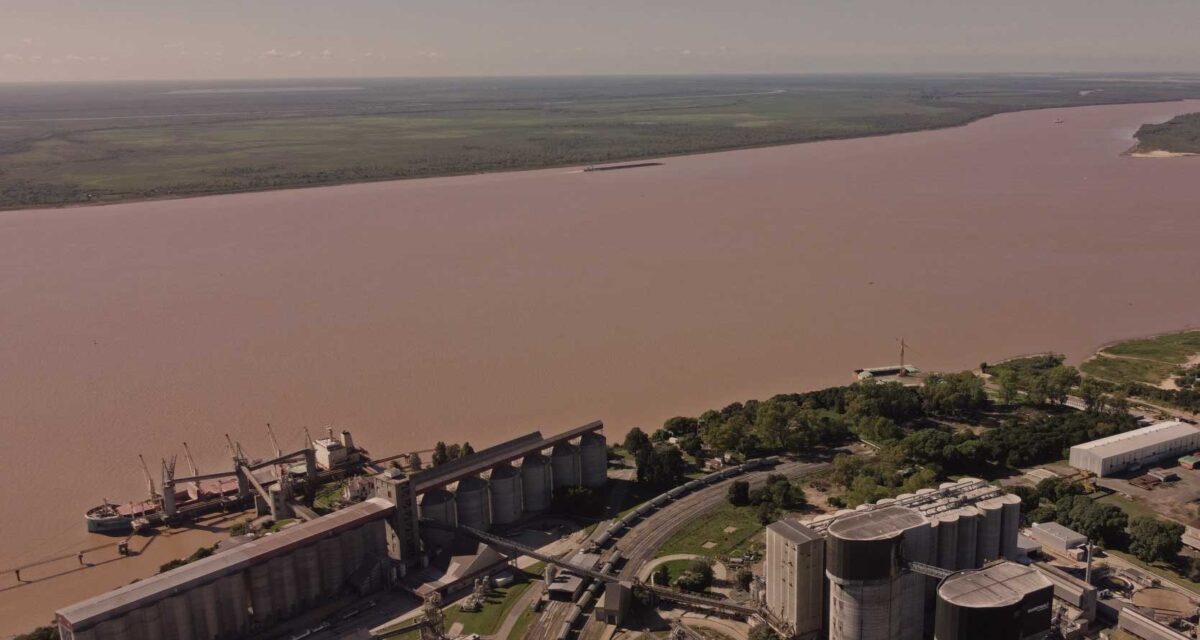Circular
Servirio`s News
THE HISTORIC DOWNSPOUT OF THE PARANÁ RIVER ALREADY AFFECTS GRAIN EXPORTS

As they admit in the export sector, the most pronounced phenomenon in the last 50 years forces the loss of between 6000 and 10,000 tons of cargo depending on the ship.
The Paraná River crosses the steepest downspout in the last 50 years, arriving this Wednesday at 18 centimeters in the port of Rosario, a situation that puts the agro-export sector on alert because ships that arrive at the region’s terminals must load fewer grains due to the shallow depth of the navigation channel and to complete the warehouses in other ports, such as Quequén and Bahía Blanca, and abroad, in Montevideo and Brazil.
The last record of the Argentine Naval Prefecture in the port of Rosario is 18 centimeters and the forecasts indicate that the river will continue to decline, something that is also reflected to the north, in all the ports on the Paraná, and also in the river Paraguay, which is part of the Hidrovía.
The peak of the downspout that began last year, according to the prefecture records, was in August, when the level of the Paraná reached 30 centimeters at the height of Rosario. The level of the river rose a little at the end of the year but never returned to normal flow and the downstream period resumed again in April.
The height of the river worries the agro-export sector because 85% of the soybean and corn harvest goes abroad through the Paraná. For now, river traffic on the waterway has not been affected by the shortage of water, although ships are obliged to reduce the load in their holds to be able to navigate in less depth.
Guillermo Wade, manager of the Chamber of Port and Maritime Activities, told LA NACION that for now “the river traffic is not complicated, but the ships are loading less in their holds, due to the effect of the downspout.”
“Ships are required to fill cargo quotas at the Quequén terminals, in Bahía Blanca and also in Montevideo and Brazil,” said the manager.
Wade said that “some port terminals had to carry out work on the docks with dredgers in recent days because the depth in those loading areas was significantly reduced.”
In the Chamber of Oil Industry of the Argentine Republic (Ciara) they expressed their concern about the downspout and warned that this situation in the river “is already affecting exports.”
“There are strandings all the time, fewer cargoes on ships that later go to Brazil to complete their completion, logistics costs that increase and lost sales, among other aspects. That is why it is critical to continue with efficient dredging and marking as before. A single day without dredging would leave us without a waterway and this whole situation could get even worse, ”Gustavo Idígoras, president of Ciara, explained.


